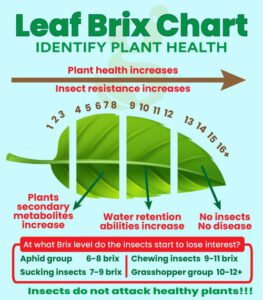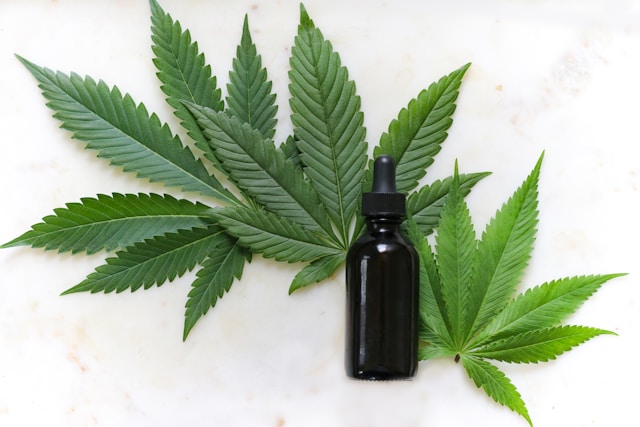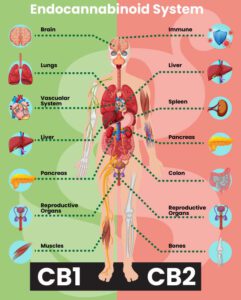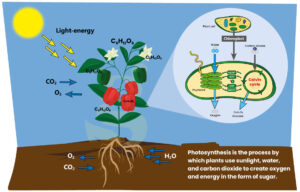
Brix in relation to crop health and quality
Brix in relatie tot gezondheid en kwaliteit van gewassen. De zoete wetenschap van Brix. Brix in relatie tot gezondheid en kwaliteit van gewassen. Brix-waarde verwijst
More yield from better quality
All in just 5 products
25+ years of fertilizer experience
Better and cheaper
Easy to use
Growers may choose to grow hemp plants for a variety of reasons. Hemp has several potential benefits and uses. There are numerous reasons why growers might consider growing hemp. Hemp is a versatile plant with several uses. It can be made into fibers for textiles, seeds for food and oil and the stalks for building materials. In addition, hemp can be used to produce biofuels, paper and even as a sustainable alternative to plastic. Hemp is also a primary source of CBD, a non-psychoactive compound with several potential health benefits. Several CBD products, including oils, tinctures and herbal tinctures are made from hemp plants.
Rich in nutrients: Hemp seeds are a rich source of nutrition. They contain high-quality protein, essential fatty acids (omega-3 and omega-6), vitamins (such as vitamin E) and minerals (including magnesium, potassium and iron). Including hemp seeds in the diet can contribute to overall health and well-being. In addition, hemp seeds are versatile in culinary uses. Hemp seeds have a mild, nutty flavor, making them a versatile ingredient in a variety of culinary applications. Growers can sell hemp seeds as a whole food product, or they can be processed into hemp oil, hemp milk, hemp protein powder and other derivatives. This versatility can attract a diverse market.
Hemp is known for its rapid growth and usually matures within three to four months. This allows for multiple harvests in one growing season, allowing farmers to switch gears faster than many other crops. Hemp plants are rich in fiber, and the stalks in particular contain long and strong fibers suitable for a variety of industrial applications. The fiber yield per acre is often higher than for other traditional fiber crops. The fibers can be used to produce textiles, paper, rope, building materials and even biodegradable plastics, among other things. This versatility offers growers several potential markets for their hemp fibers.

Growing hemp has several environmental benefits. Hemp cultivation often requires fewer pesticides and herbicides than other crops. Growing this crop typically uses less water than similar crops. In addition, hemp can naturally absorb carbon dioxide (Co2), making it a potentially environmentally friendly crop. Hemp can absorb and accumulate heavy metals from the soil through a process called phytoremediation. The plant absorbs pollutants from the soil and the concentration of these pollutants can be measured in the harvested biomass. However, effectiveness varies depending on the specific metal and soil conditions. Hemp has deep roots that help aerate and break up the soil, making it a beneficial soil conditioner. It can also contribute to soil health by suppressing weeds and reducing the need for herbicides.
Fortunately, the legal landscape surrounding hemp cultivation has changed in many regions. Governments have finally begun to recognize the economic and environmental benefits of hemp. As a result, growers in various parts of the world already have access to the ability to grow hemp without legal restrictions. It is important to note that while hemp cultivation has numerous potential benefits, local regulations, market demand and hemp fiber processing infrastructure can influence growers' decision to grow hemp for fiber production. Moreover, it is critical for those considering hemp cultivation to stay abreast of changing regulatory and market conditions.

Brix in relatie tot gezondheid en kwaliteit van gewassen. De zoete wetenschap van Brix. Brix in relatie tot gezondheid en kwaliteit van gewassen. Brix-waarde verwijst

Het endocannabinoïde systeem begrijpen Een korte handleiding voor CB1- en CB2-receptoren Het endocannabinoïde systeem (ECS) speelt een fundamentele rol bij het reguleren van verschillende fysiologische

Photosynthesis Photosynthesis is the process by which green plants, algae and some bacteria convert light energy into energy in the form of glucose. This process mainly takes place

7 handy tips to prepare for the new garden season Gardening tasks when the spring jitters strike: Spring is a time of renewal and

The development of hydroponic fertilisers through the ages The history of hydroponics is a story of innovation and perseverance, rooted in the quest of the

Creating a successful indoor grow involves more than just light and water. Here are 7 tips to boost your indoor garden.
Brix in relatie tot gezondheid en kwaliteit van gewassen. De zoete wetenschap van Brix. Brix in relatie tot gezondheid en kwaliteit van gewassen. Brix-waarde verwijst
Het endocannabinoïde systeem begrijpen Een korte handleiding voor CB1- en CB2-receptoren Het endocannabinoïde systeem (ECS) speelt een fundamentele rol bij het reguleren van verschillende fysiologische
Photosynthesis Photosynthesis is the process by which green plants, algae and some bacteria convert light energy into energy in the form of glucose. This process mainly takes place
7 handy tips to prepare for the new garden season Gardening tasks when the spring jitters strike: Spring is a time of renewal and
The development of hydroponic fertilisers through the ages The history of hydroponics is a story of innovation and perseverance, rooted in the quest of the
Creating a successful indoor grow involves more than just light and water. Here are 7 tips to boost your indoor garden.
Home » The benefits of large-scale hemp cultivation

Because growing your own is a craft. It takes time, energy, focus, attention, maybe even love. At your own pace, in your own environment. You are the creator.